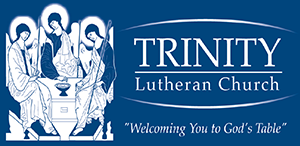Dirk Willems is not a name that most people in the twenty-first century know. Dirk was an Anabaptist who lived in the Netherlands in the 1500s. Anabaptists were part of what is called the “Radical Reformation.” While Luther and Calvin and Zwingli wanted to reform the Roman Catholic Church and return to what they understood to be more biblical practices in worship and theology, the so-called “Radical Reformers” encouraged people to embrace the teachings of the New Testament, especially the Sermon on the Mount, in every aspect of their lives. The Anabaptists were so named (Anabaptists = “re-baptizers”) because they did not believe in infant baptism as the Roman Catholic and established Protestant churches did. Anabaptists taught that a person should only be baptized when they were able to confess their faith in Jesus Christ and make a decision to be part of the Church. In the 1500s and 1600s, this was considered a terrible heresy, and many Anabaptists were imprisoned and even executed.
As a young man, Dirk Willems accepted the teachings of the Anabaptists and was re-baptized. He became part of a community of believers that tried to follow Jesus faithfully and live according to the Sermon on the Mount. Because of his rejection of infant baptism, he was arrested and imprisoned. Dirk escaped from prison one day and was pursued. As Dirk ran across a frozen river, he heard his pursuer shout for help. The pursuer had fallen through the ice and was drowning. Dirk immediately turned around and pulled the man from the freezing water, saving his life. The pursuer arrested Dirk, and Dirk went back to prison. Shortly thereafter, Dirk was executed (burned at the stake).
What makes a man turn around to rescue his enemy at the risk of his own life? It had to be an automatic response. People don’t take long to drown in frigid water. When Dirk heard his pursuer’s cry, he turned around, ran back and rescued him. He didn’t weigh his options or consider what the best course of action was considering his theological and ethical beliefs. Dirk saw someone’s life in jeopardy – an enemy’s life – and he acted in a way consistent with what he had learned and lived as part of his Anabaptist community. As Jesus loved his enemies, so Dirk had prayed that he might love his enemies. When the time came, it was almost a reflex for Dirk to save his pursuer’s life. Dirk’s life had been shaped by the life and teachings of his community which had experienced the love of Jesus, the Man who had cried from the Cross, “Father, forgive them, for they do not know what they are doing” (Luke 23:34). He didn’t have to ponder, “Should I save this man’s life?” He simply did it.
We might think that Dirk Willems was one strange character. Truly, his actions don’t make sense – unless Jesus, the Crucified and Resurrected One, really is Lord of heaven and earth. If the Son of God came down to earth in Jesus and demonstrated his love for us by being willing to die, even on a Cross, then it makes sense that we, too, could show God’s love for our enemies by showing them kindness and even risking our lives to save theirs.
Dirk Willems did not act like most human beings. Most people would probably keep on running if they had escaped a death sentence and the person chasing them fell through the ice. But perhaps Dirk is not as unusual as he might seem at first.
It is possible for any of us to develop these “holy reflexes,” to live in the place close to Jesus where we can show God’s love. Of course, the ways we do this are almost always not as dramatic as the way that Dirk Willems did. But everyday acts of kindness and compassion are also very important. Our lives can be shaped by Jesus’ love and our reflexes can be formed by our participation in a community that loves Jesus so that we act in ways that are not commonplace. As we read and study the Scriptures, pray and sing praise to God, as we hear the Good News of God’s great love for us and begin to feel that love, our lives are shaped by God. We can almost automatically act in ways that manifest God’s love.
We cannot do this alone or through our own effort. As Alan Kreider says, “For the Church to make a contribution to the healing of the world, we must allow God to change us, its members. God longs to make us into the Body of Christ in whom Jesus is alive, through transforming the conflicts that we face in our relationships and communities, through forgiveness, through prayer, and through the Holy Spirit” (A Culture of Peace, God’s Vision for the Church, p.60-61).
We can be grateful that we do not live in a time or place where we are imprisoned or killed for our faith. However, we do live in contentious times. What would it look like if we Christians allowed the Lord Jesus to shape lives so that His love shone more clearly through us? Suppose we had the “holy reflexes” of showing love for enemies and compassion for strangers? We might seem almost as strange as Dirk Willems. But our congregations, our communities, our world and we, ourselves, would be truly blessed.
